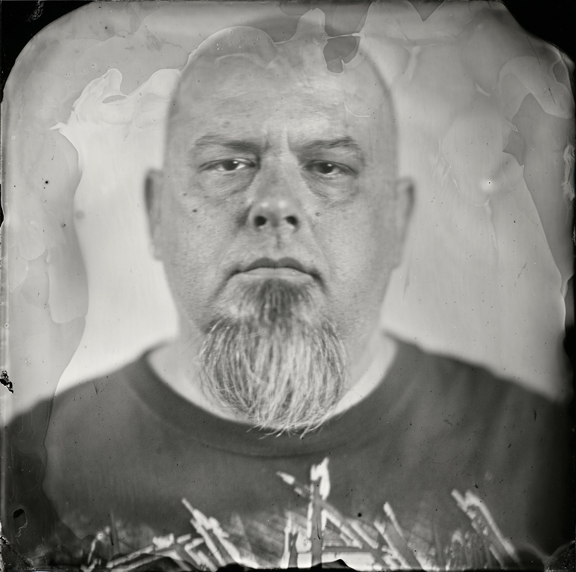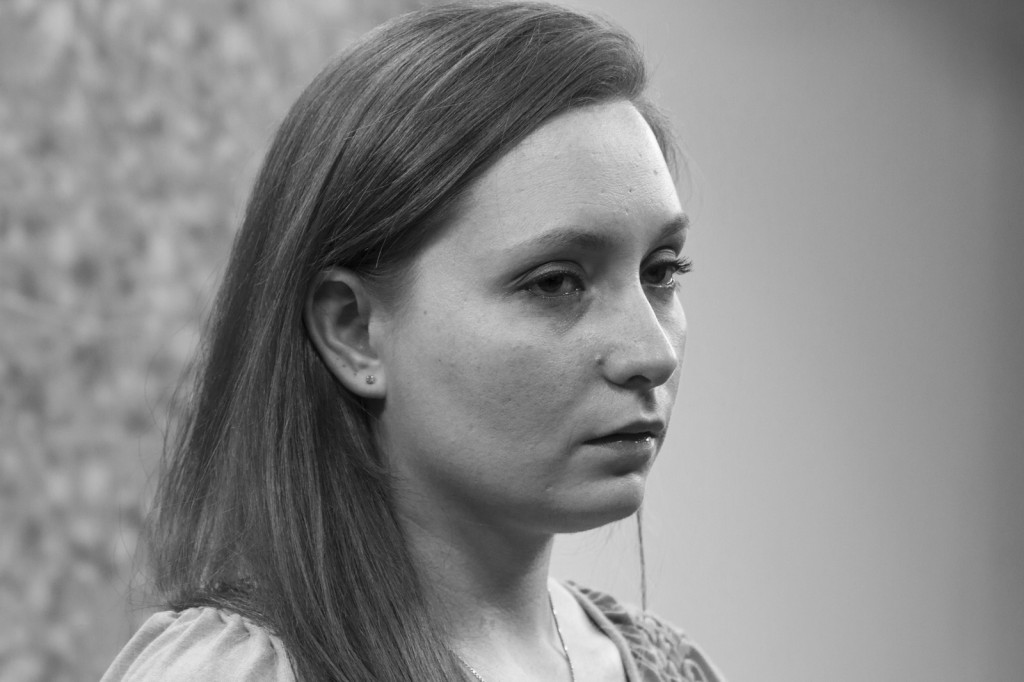I know I should really post more than once a month. This semester is kicking my ass a little bit, but that’s not necessarily a bad thing. I’m learning a lot and finding out things about my vision that I never realized before. But we won’t go too much into that with this post. Let’s go ahead and keep this one on the simple side.
I can’t remember if I mentioned this or not (and frankly, I’m too lazy to go back and look), but our in-depth topic of study this semester is portraiture. This is a little out of my comfort zone as I’m not one to shoot people. I guess this comes a little from a view I had of portraiture that was rather limited in scope. I have had models sit for me before and they expected direction from me. The problem for me in those situations was I would go into them with very little in terms of an idea other than “I just want to photograph a person in various poses.” Needless to say, it was a little difficult to get much in the way of content from them. That’s not to say that those sessions were wastes of effort – I did get some good shots out of my subjects. They just seemed to take a lot more effort than I anticipated.
A couple of years has passed since those early sessions. I found out that having an idea was very important when going into a shooting session. Currently I have 3 active photo projects. Of those, 2 are portraiture projects that have concrete ideas attached to them. One deals with projection and perception while the other deals with emotion. Of course, the emotion project could be a perception/projection type project as well, but since this is a rather specific area, I am a little hesitant to lump it under that heading. After all, isn’t portraiture all about perception and projection? But I digress… here are 2 images of those projects in progress (click image to embiggen:
I’m sure my readers can tell which is which in terms of projects. We just had a midterm critique and I received some really positive feedback on the images in the projection/perception project. The only real negative was one of the professors really didn’t care for the print quality, which I thought was very fair given there were some issues with the color balance throughout the series. All in all, however, the feedback was very positive and the critiquing bodies expressed an interest in more samples as well as how I edit them down for the final series. We ran out of time so we weren’t able to discuss the emotion project images I submitted. I’m not unhappy about it though, as the project is specifically for my class with Keliy Anderson-Staley, and not my overall semester project (which the other is).
Speaking of Keliy Anderson-Staley, she is a professor that the University of Houston and a bit of a rising star in the fine art portraiture game. She shoots a lot of tintype portraits. A tintype is made when a metal substrate (tin, in this case) is coated with an emulsion and then used as the “film” in the camera. The “film” is then developed, fixed, and washed pretty much the same as film. The emulsion is slow (in this case it was a 15 second exposure) so Keliy used a bar to help keep my head upright through the entire exposure. The use of tin as a substrate and the wet collodion emulsion is one of the earliest processes of photography. She took this of me in February:

I highly recommend checking her website (link at end of article). She has some really good stuff up there.
Well, at this point I should be heading out as it is late and I need to be awake in a little over 4 hours. I will update again soon as a lot has happened for me, and I have many more ideas I would like to discuss. Feel free to comment at will, and don’t forget to check out Keliy’s work.



Leave a Reply